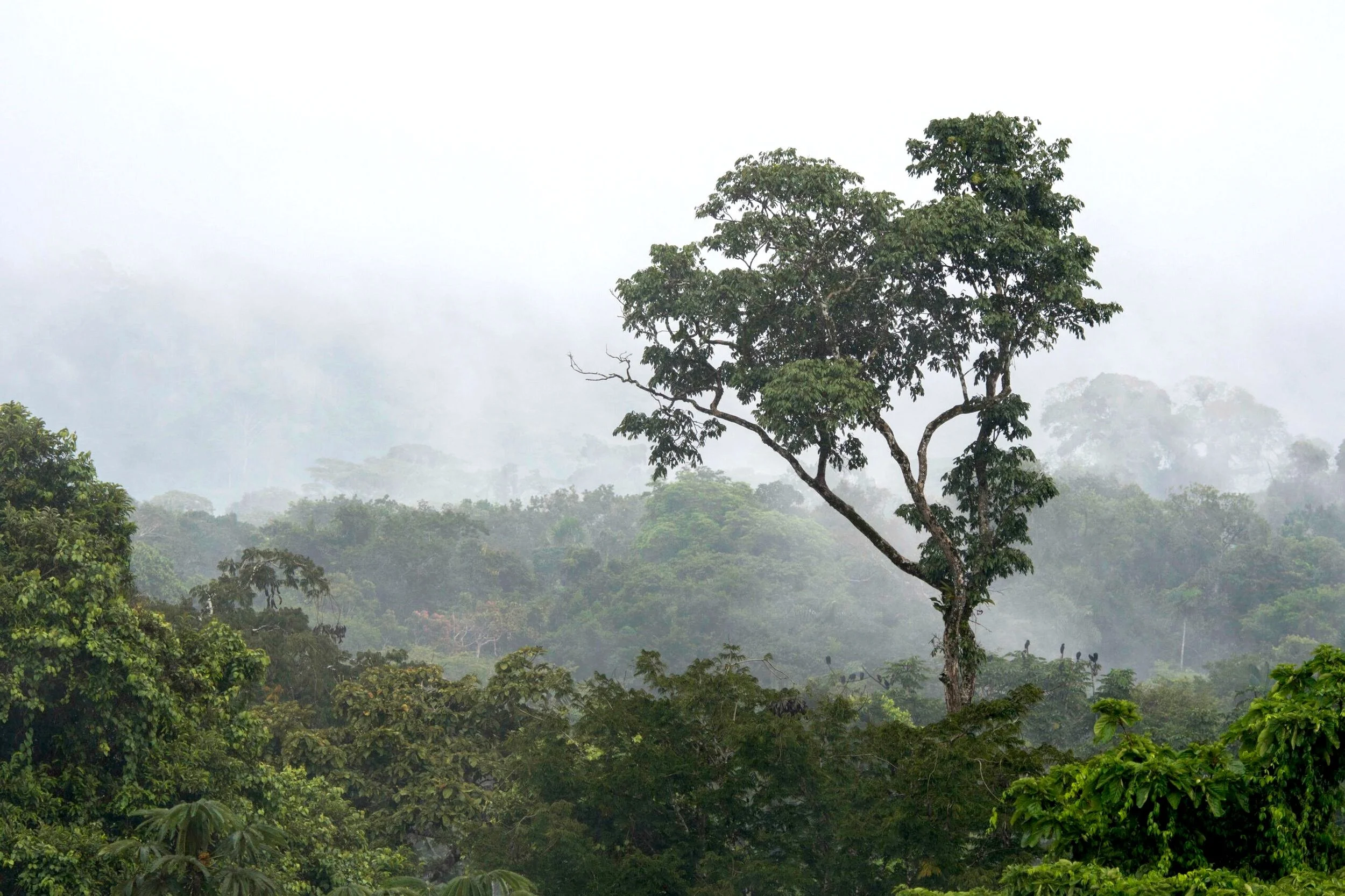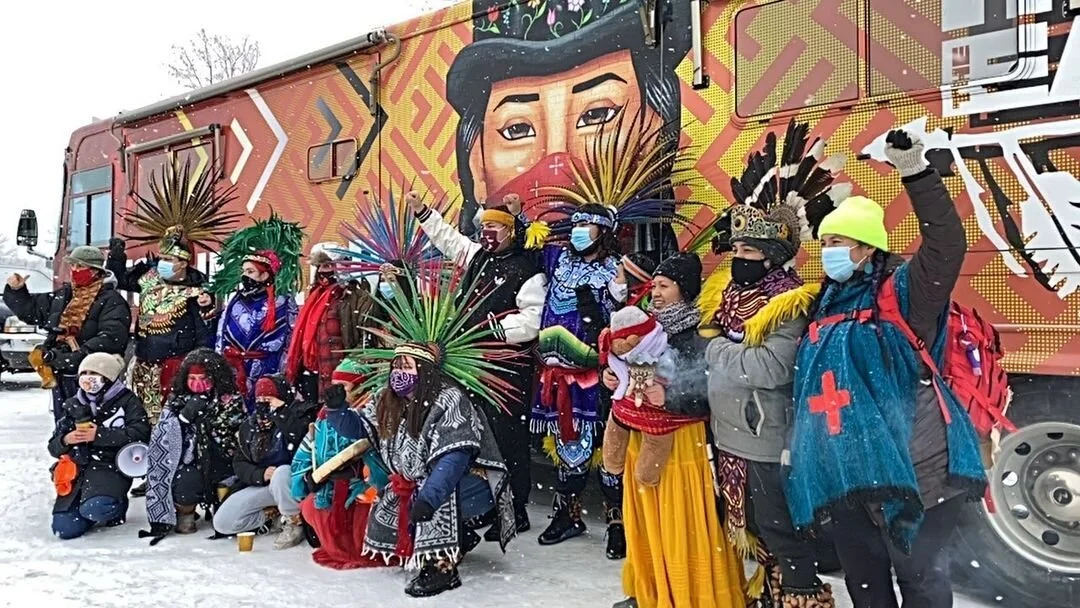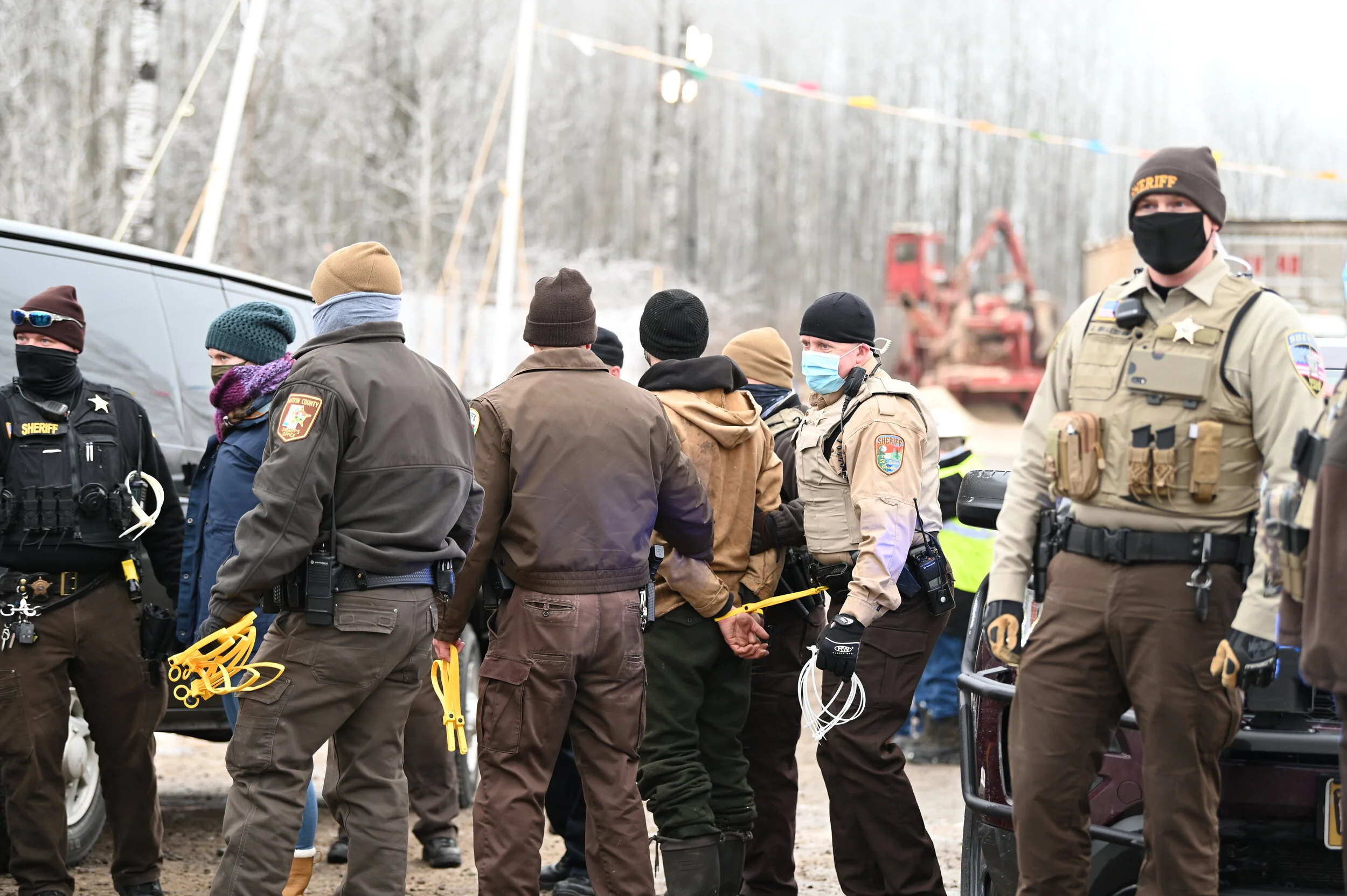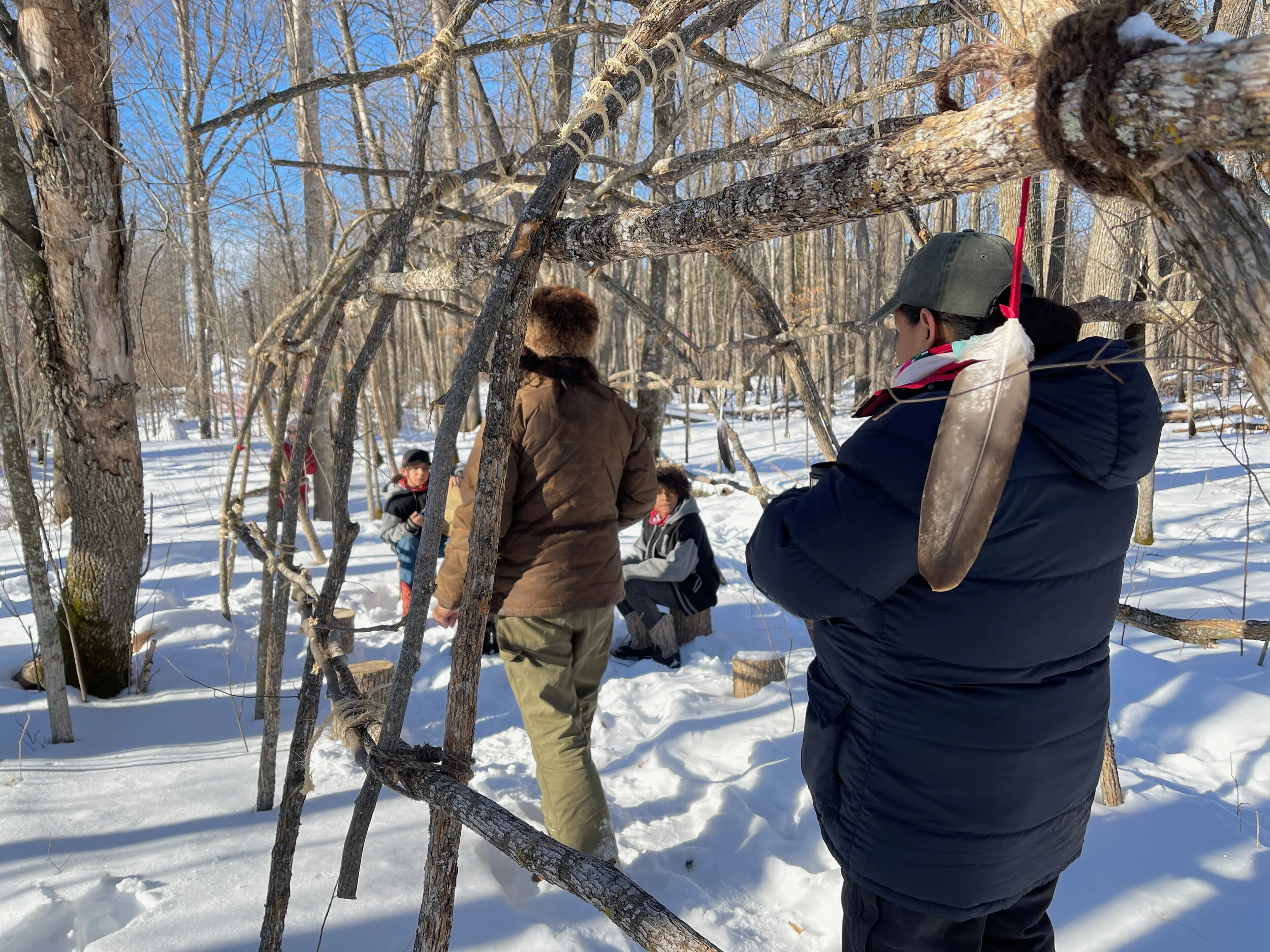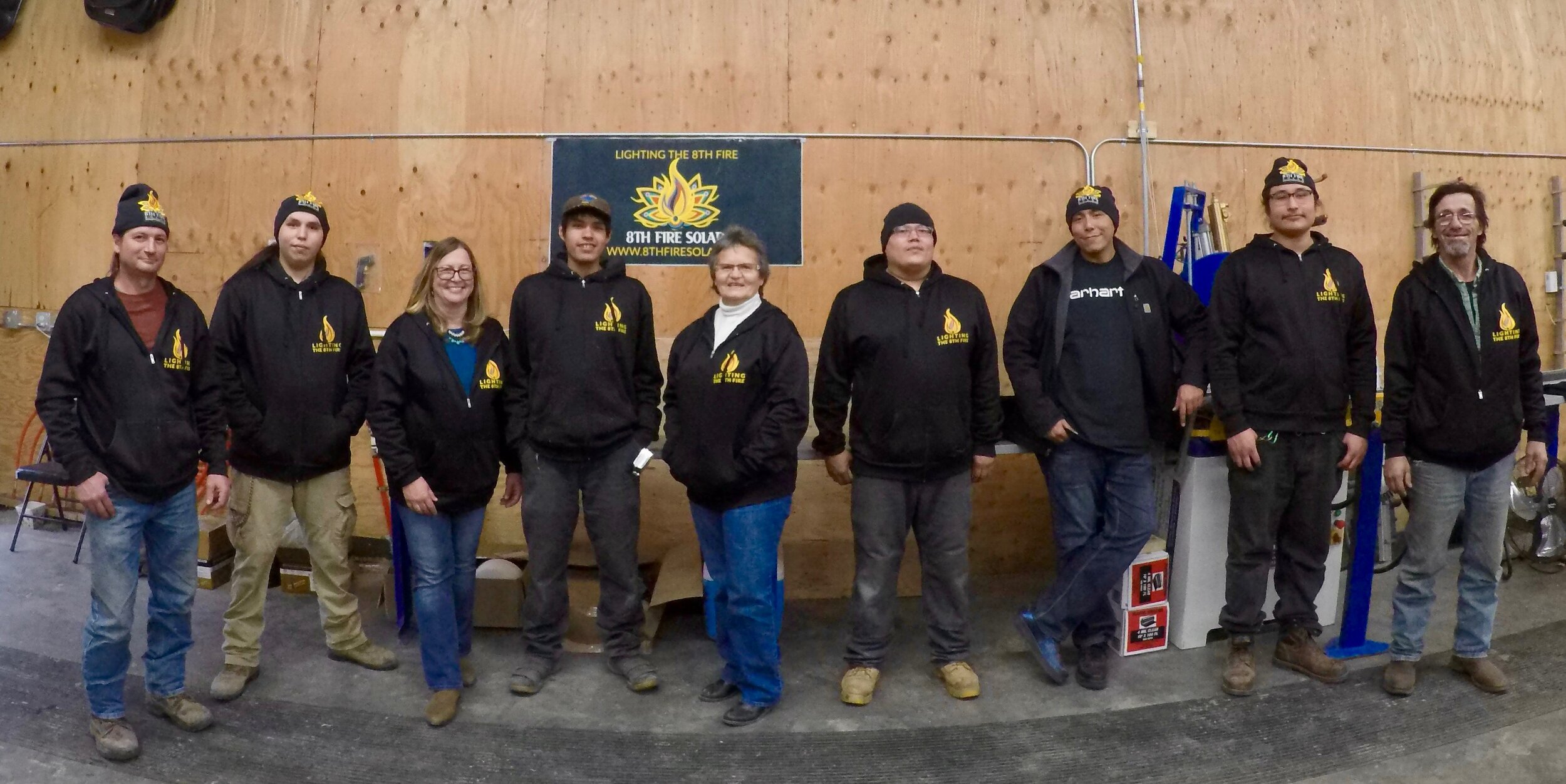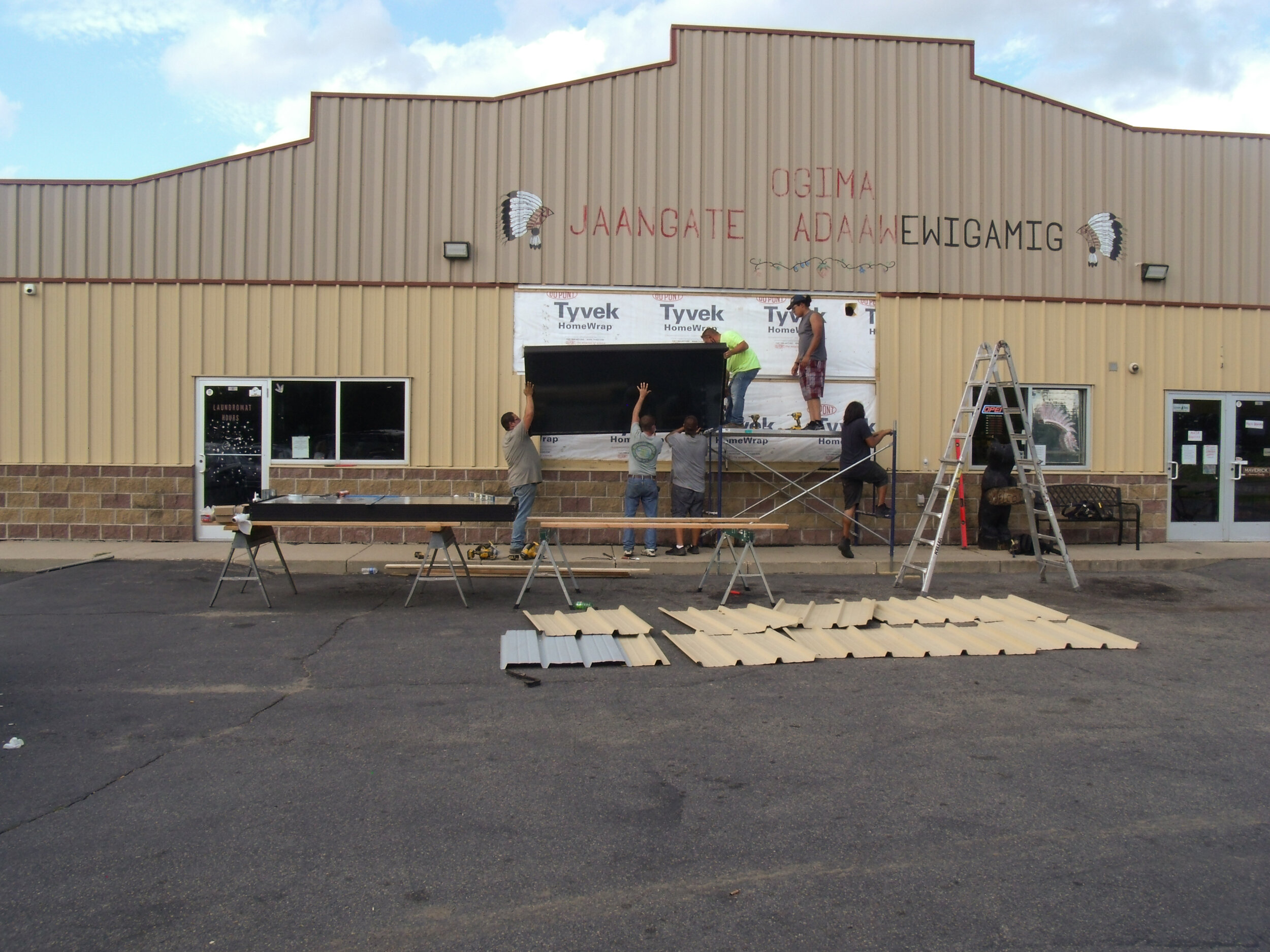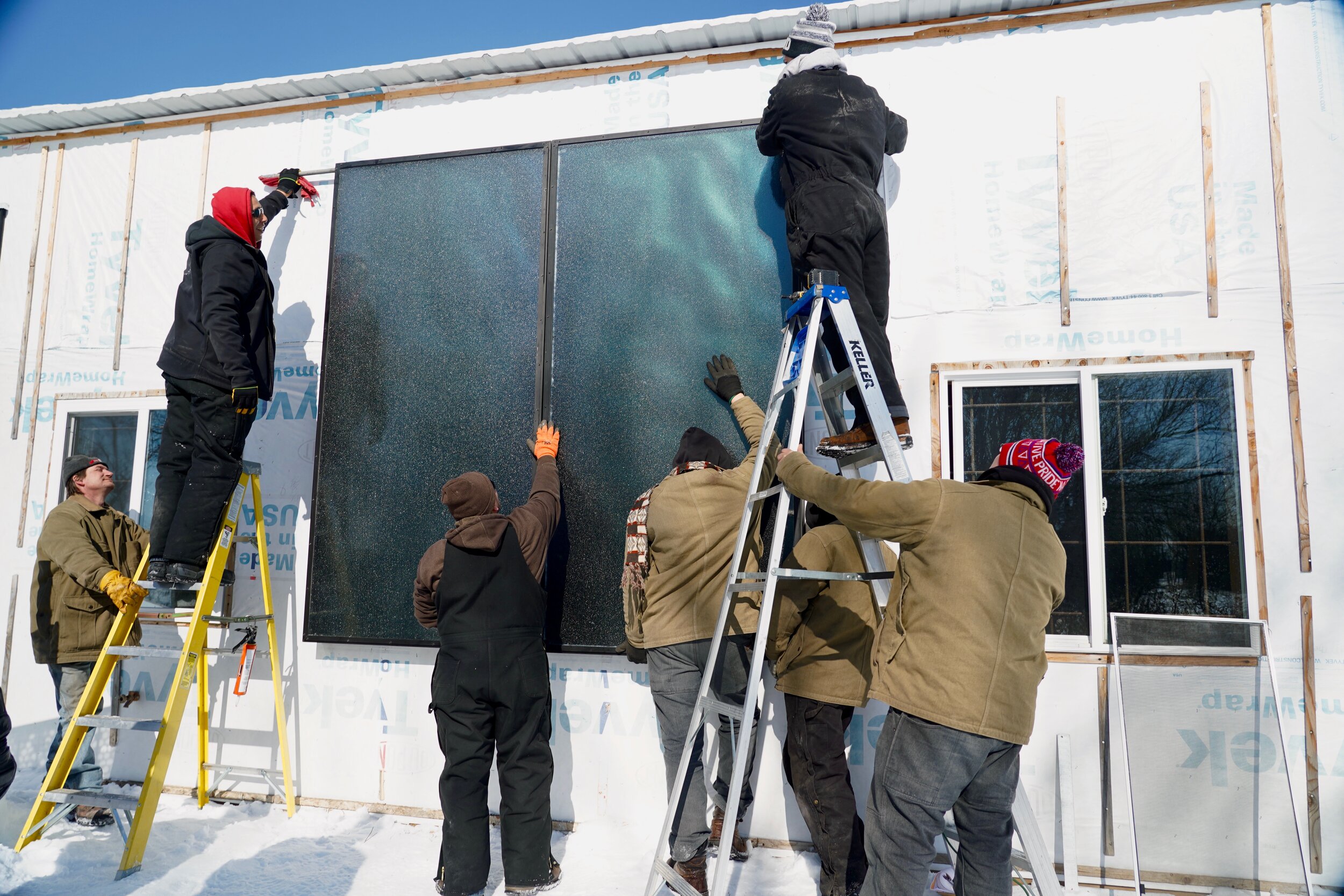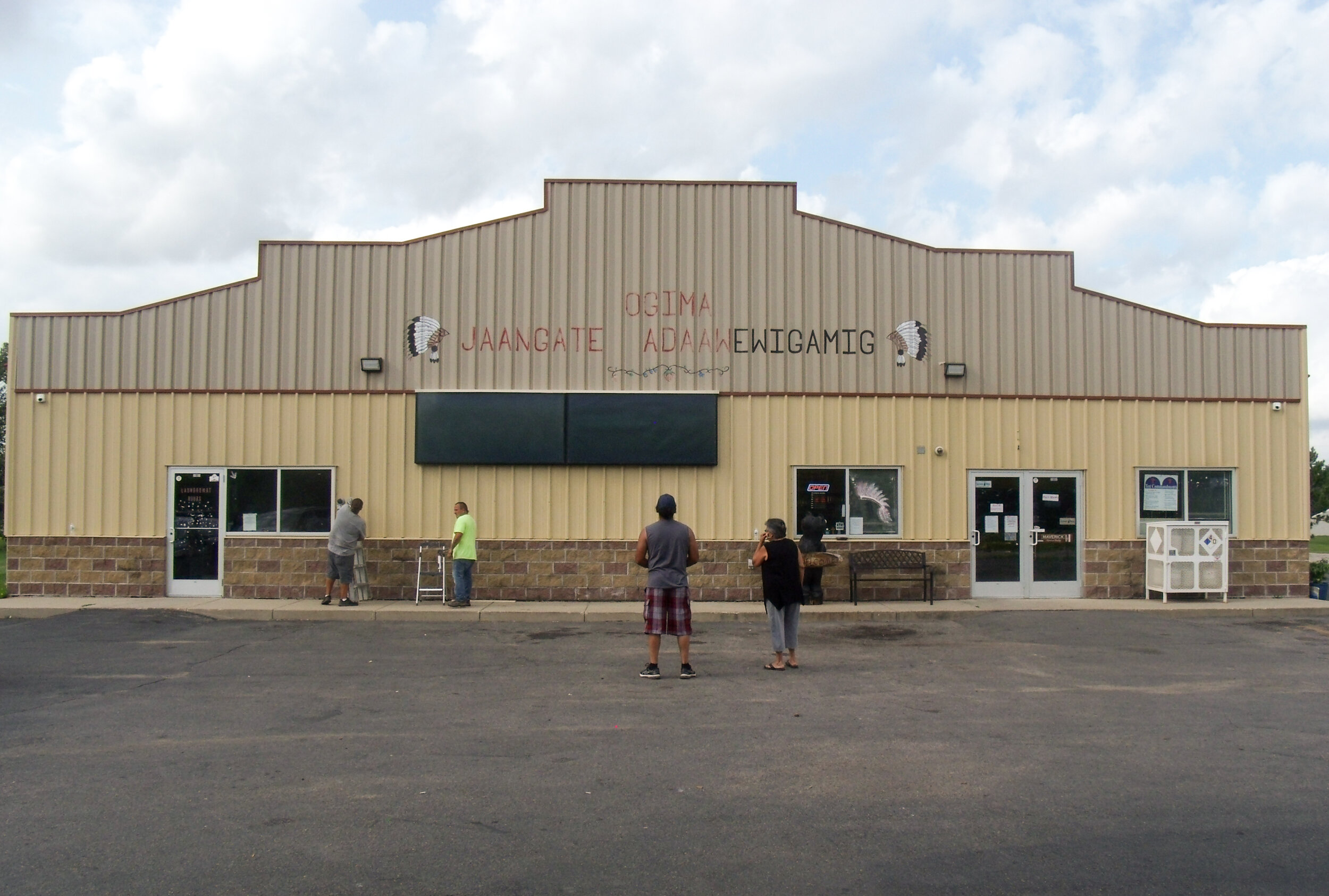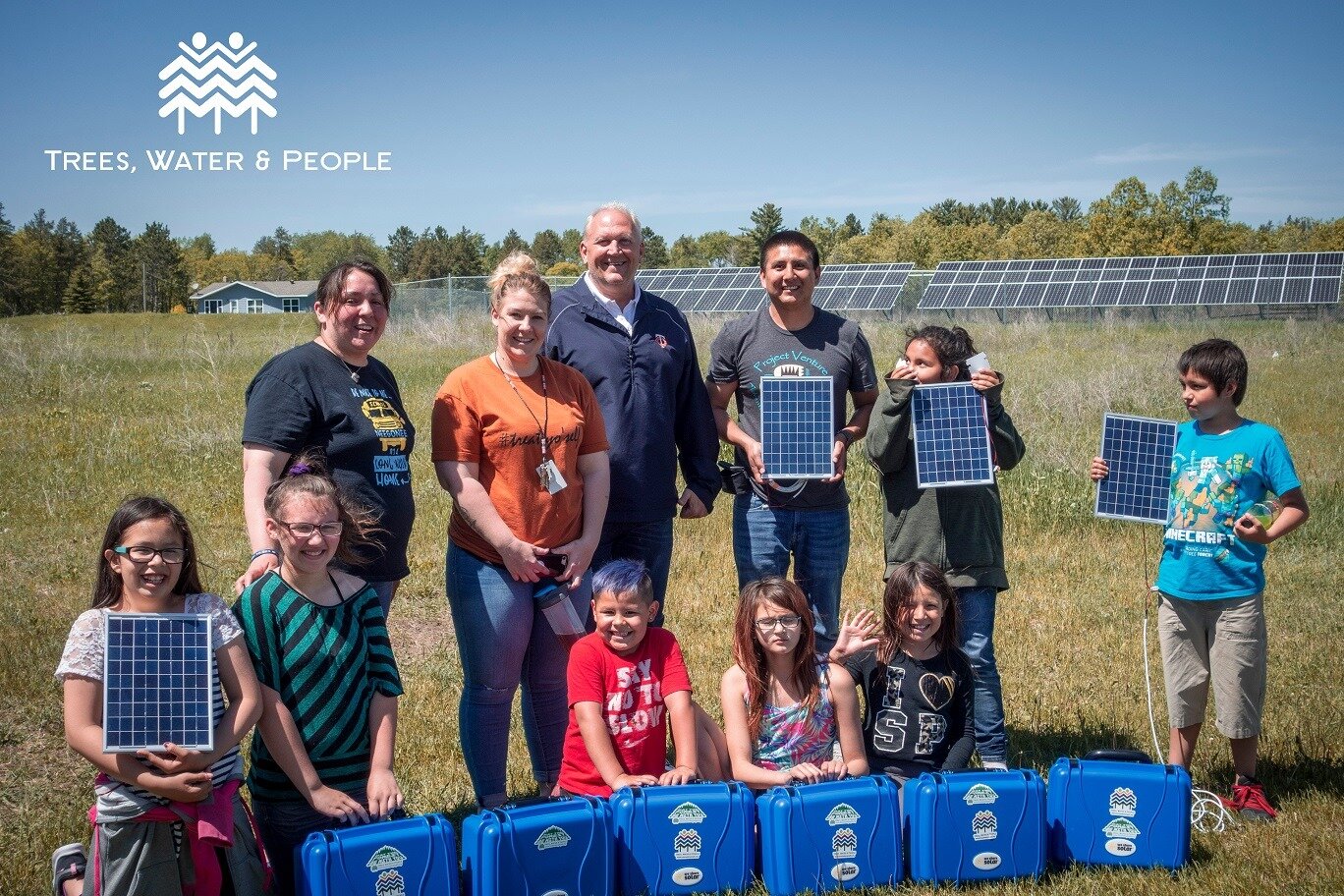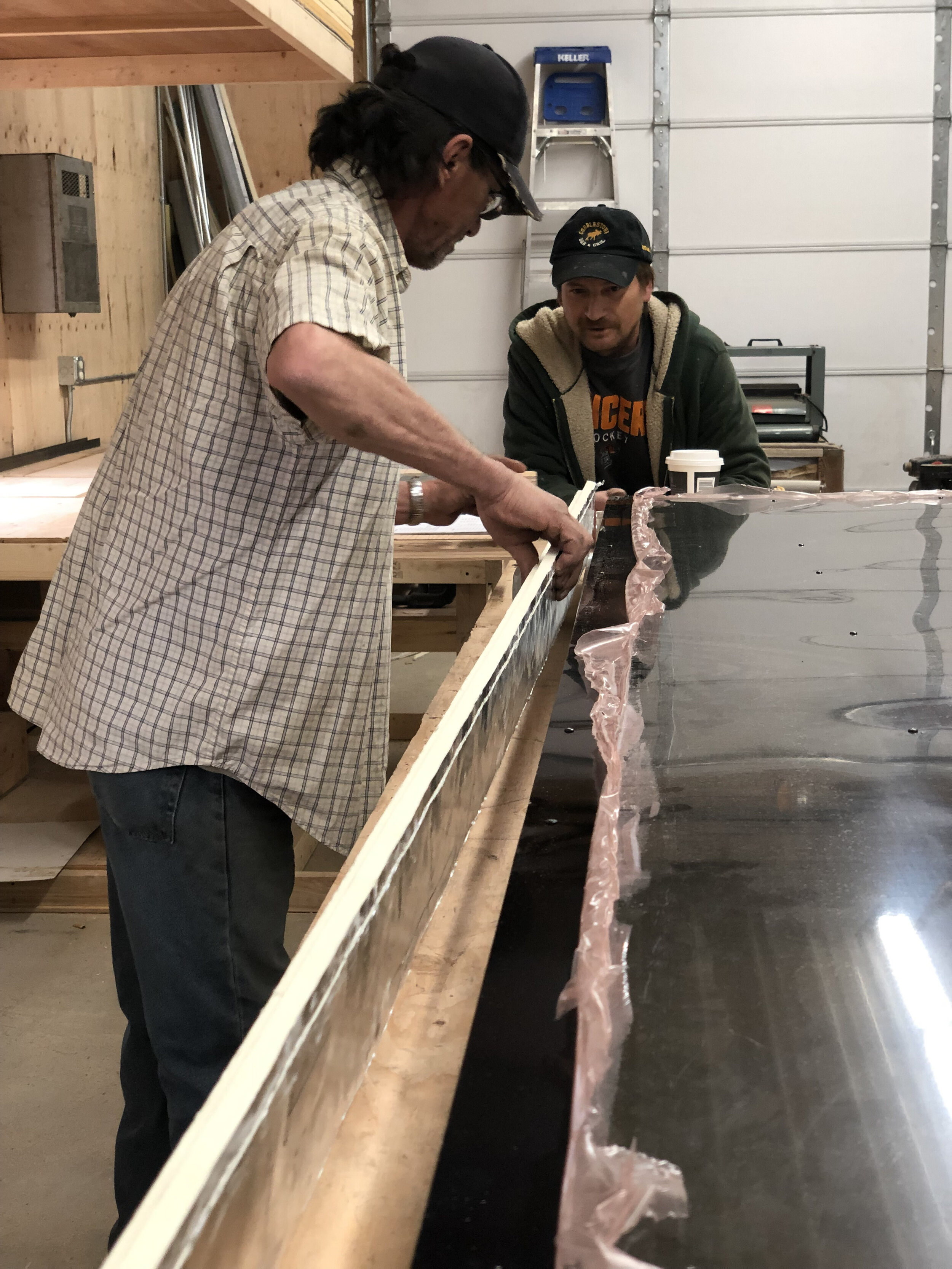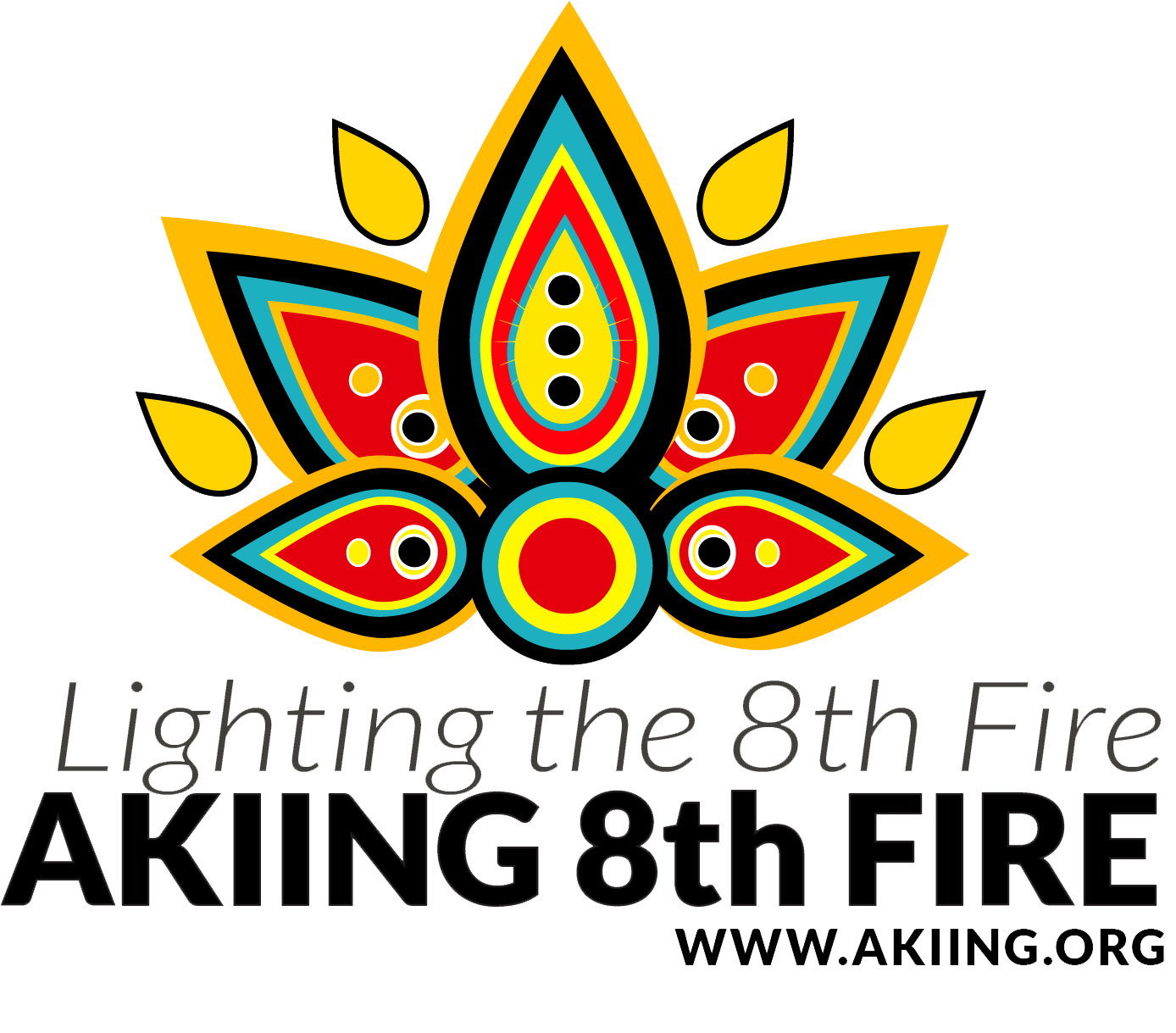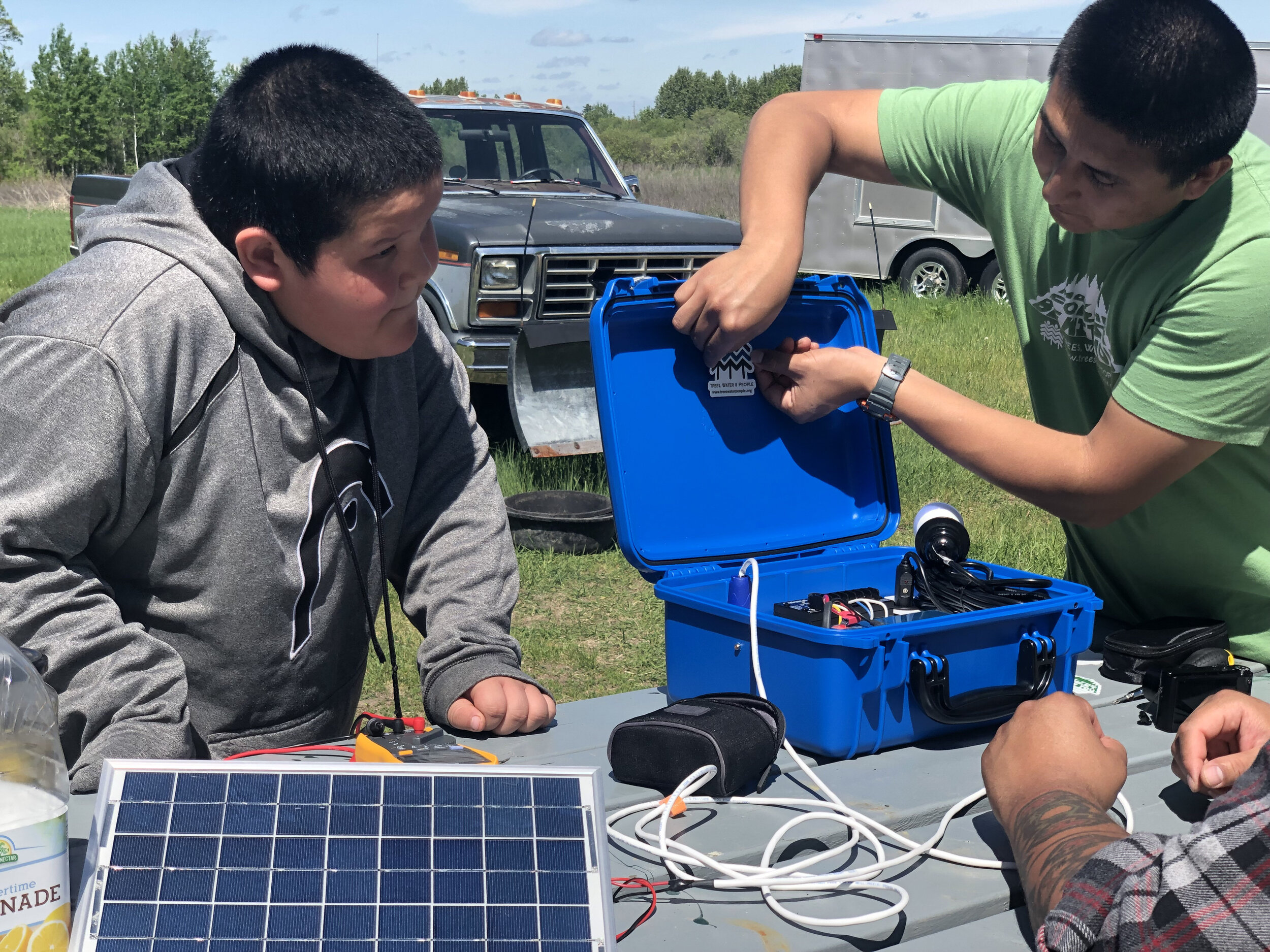The Covenant
Mother Earth is, in the north country, or Giiwedinong, telling us to take a breath, and tell aadizookaan, or sacred stories, take to the arts of weaving, quillwork or maybe just a reflection.
The Covenant
By Winona LaDuke
In the deepest of winter, is a time to be grateful to listen. Maybe it is the sound of ice cracking on the lake, or the muffle and silence of the snow, burying deep the many things left in the yard.
The harvests are in, and the wood stove needs tending.
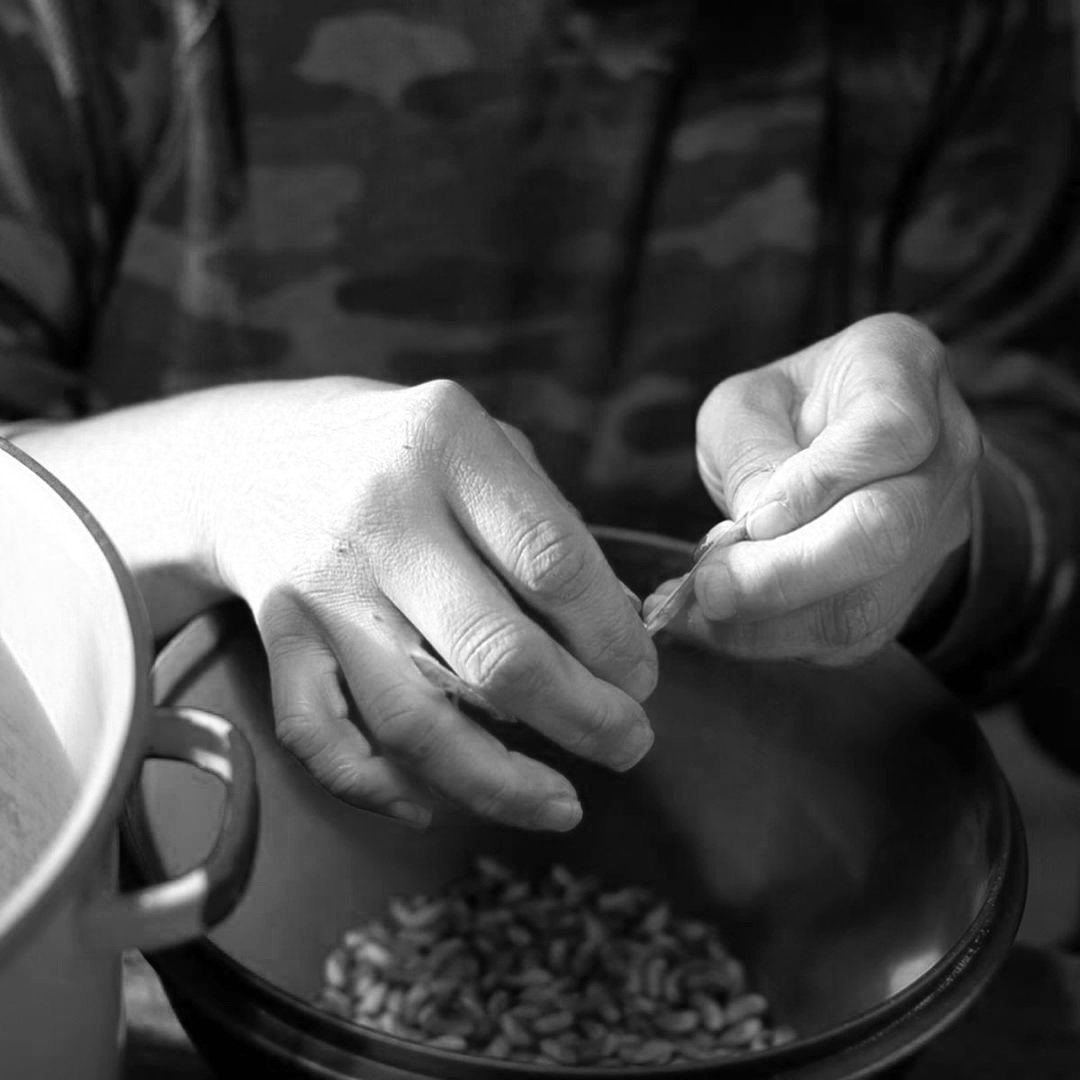
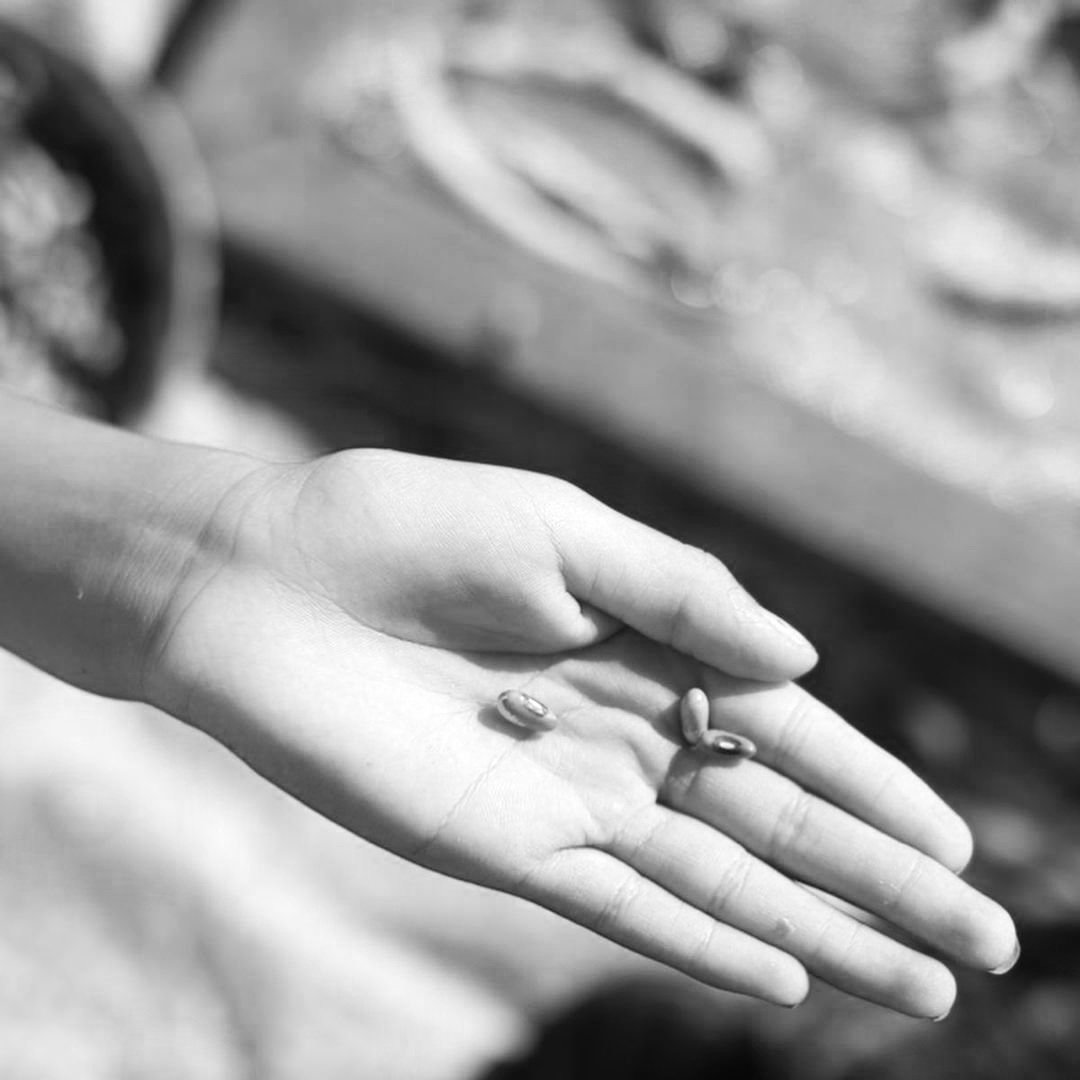
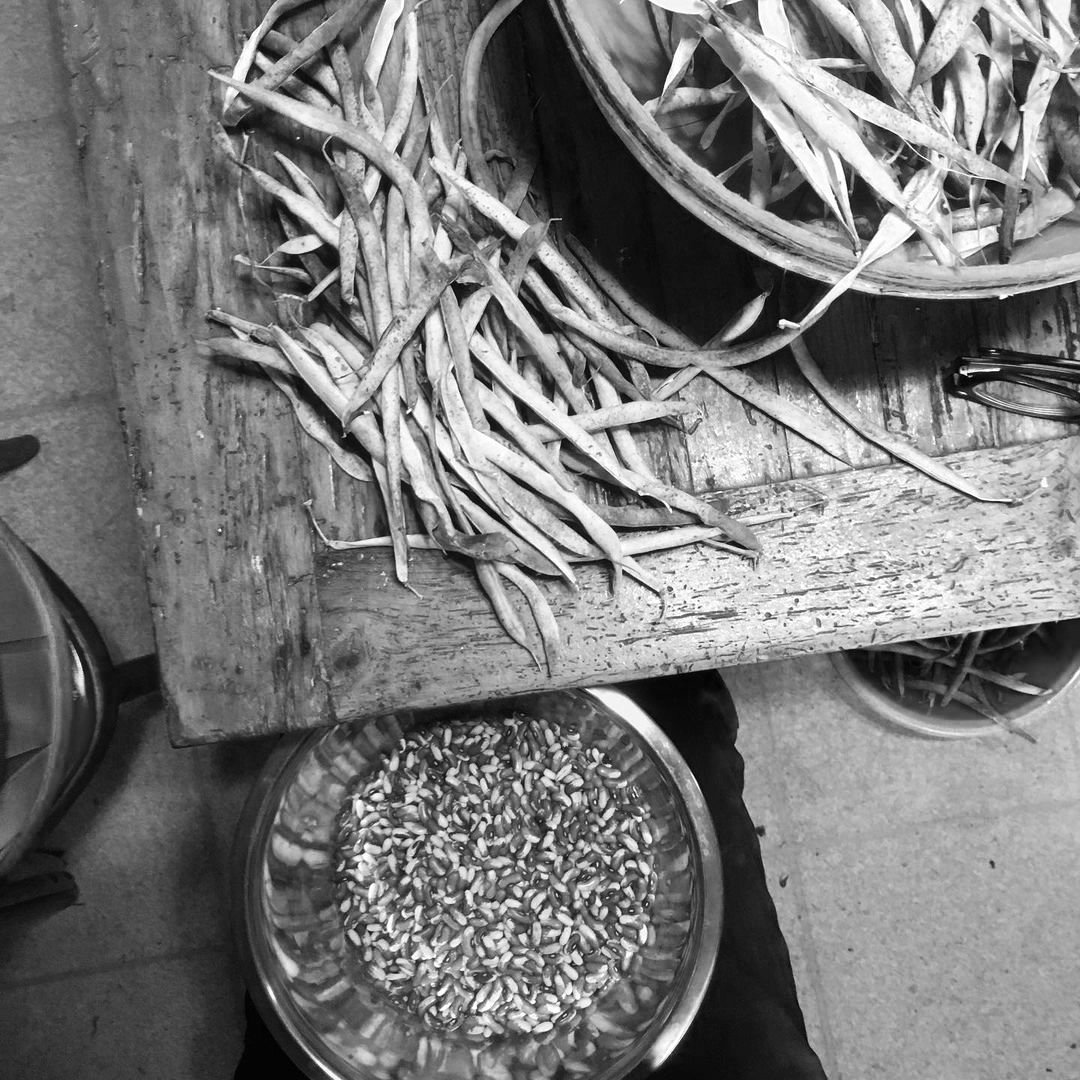
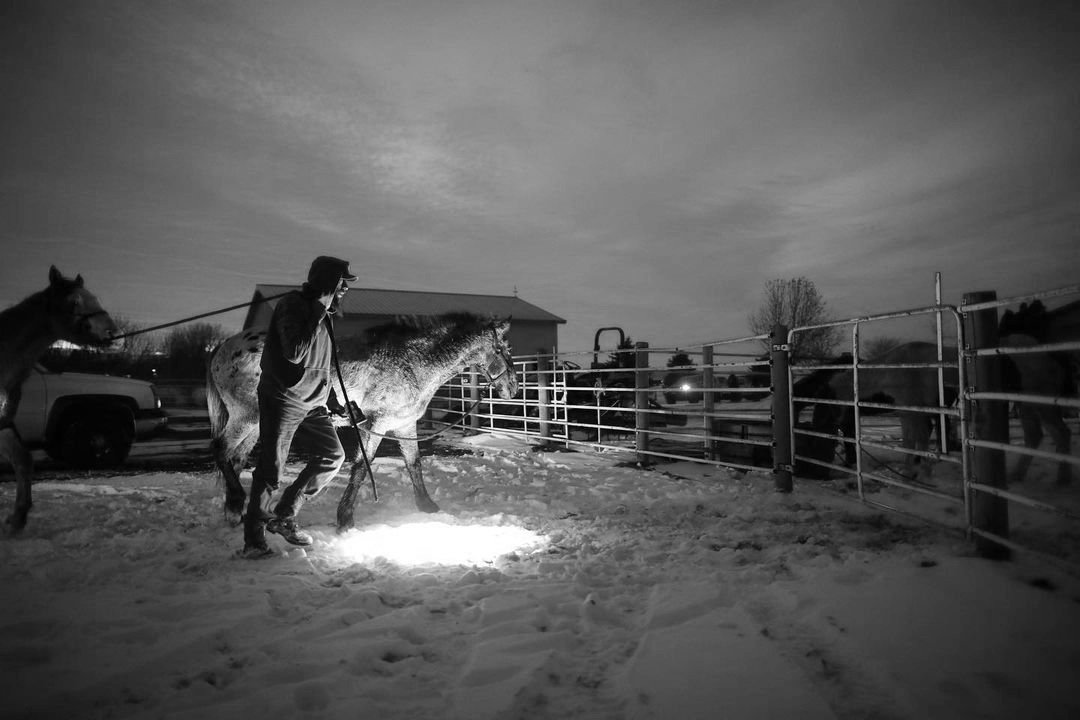
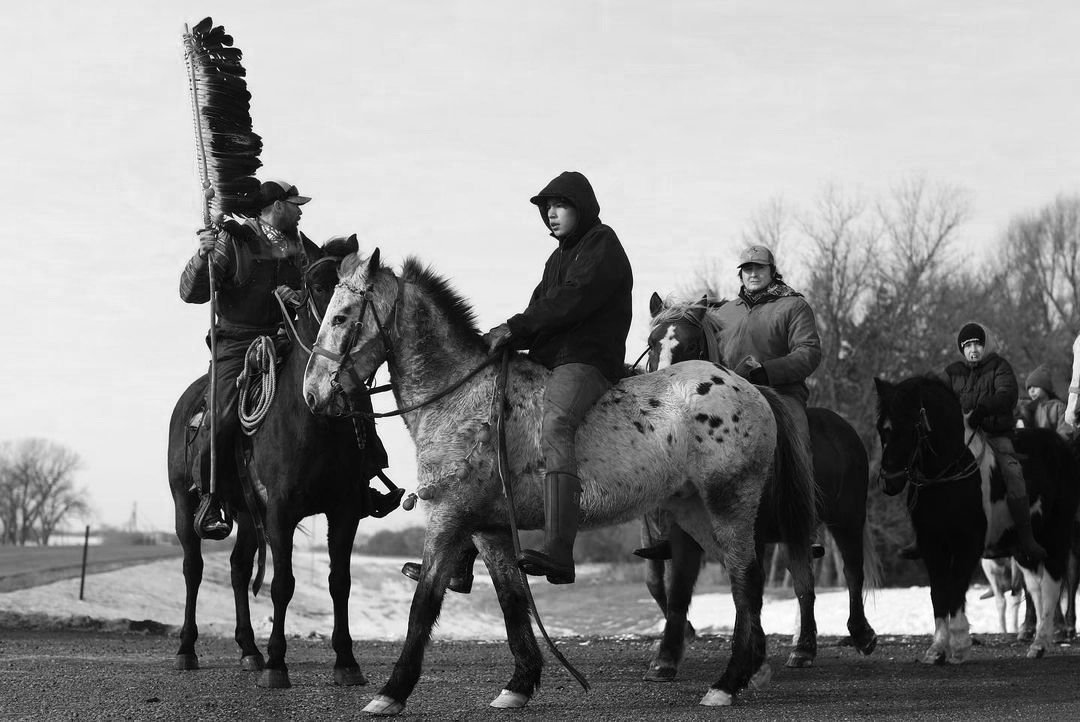
Mother Earth is, in the north country, or Giiwedinong, telling us to take a breath, and tell aadizookaan, or sacred stories, take to the arts of weaving, quillwork or maybe just a reflection.
That’s quite a bit different than the teachings of shopping. I, like many, rankle at the overconsumption and find myself returning to the teachings, softness and wonder of a new snowfall. At our core, we don’t live in a shopping mall, or on Amazon. The Amazon is a place in the world, not just a Prime account.
She is a living being, a river and a world.
Jeff Bezos is not protecting the Amazon, he’s headed to space. On Dec. 4, the Constitutional Court of Ecuador ruled that a Canadian mining corporation’s proposal to mine in a protected area violated the rights of nature. Seven justices voted in favor and two abstained.
“[T]he risk in this case is not necessarily related to human beings … but to the extinction of species, the destruction of ecosystems or the permanent alteration of natural cycles,” Judge Agustín Grijalva Jiménez wrote.
Ecuador’s constitution recognizes the rights of “Pachamama,” or Mother Earth, to exist and to “maintain and regenerate its cycles, structure, functions and evolutionary processes.”
In 2008, the country was the first in the world to enshrine the rights of nature in a constitutional document, affording nature the highest form of legal protection.
The legal systems are changing, as legal rights which have been accorded corporations (considered natural persons under the law in the United States) are seen to be not only inequitable, but wrong.
And, indeed, the very foundation of some of American, British and other colonial legal canons is — based on precepts like “Doctrine of Discovery” or “Terra Nullius” (Latin for “empty land”) the idea that no one was in the Amazon, or the Northwoods before a white man showed up — are being turned on their head. Indeed, one only needs to ask the philosophical question “Is a corporation a person?” to come up with the answer. No, a corporation cannot be a person because a person has a soul, and a corporation does not. And, despite the trappings of “regulations” the fact is, that if you cannot drink the water, your regulations are, well, impotent.
The Ecuadorian case is not alone.
On Aug. 5, an action was filed in the White Earth Tribal Court by Manoomin (wild rice), which has legal standing in the Anishinaabe regulatory system.
That’s the same as Ecuador. Manoomin versus Minnesota DNR alleges that the Minnesota Department of Natural Resources violated the rights of the wild rice in the 1855 treaty territory and beyond, when the DNR allocated Enbridge 5 billion gallons of water from our then parched land, to provide Enbridge with enough water to drill our rivers, and contaminate them.
The fact is an aquifer breached in Clearwater County (l00,000 gallons of water a day are gushing out of the hole Enbridge made), and we have no idea how much water they’ve used.
And, it appears that the state of Minnesota does not care. This is the first case brought in a tribal court to enforce the rights of nature, and the first rights of nature case brought to enforce treaty guarantees.
In December 2018, the White Earth Tribal Council adopted a “rights of manoomin” law. The law begins:
“Manoomin, or wild rice, within all the Chippewa ceded territories, possesses inherent rights to exist, flourish, regenerate, and evolve, as well as inherent rights to restoration, recovery, and preservation.” Indeed, attorney Dale Greene Jr. said, “It’s logical to give rights to plants, animals and the natural world, because the Ojibwe worldview holds that everything in nature is a spiritual being, and there is an acknowledged relationship with humans. “I sometimes call it a covenant,” he said. “They’re providing life to us. It just makes perfect sense that it’s a living, providing, spiritual being, in the form of water or food.”
This is how the world changes. Legal and regulatory systems set up to strengthen corporations and take from Mother Earth are being challenged internationally. And, as surely as slavery, which was once legal is abhorred. The world is changing.
In this time remember the words of the great Indian writer, Arundhati Roy: “Another world is not only possible, she is on her way. On a quiet day, I can hear her breathing.”
“Mother Earth is, in the north country, or Giiwedinong, telling us to take a breath, and tell aadizookaan, or sacred stories, take to the arts of weaving, quillwork or maybe just a reflection.”
LaDuke: Slow down to take in the Creator’s Clock
When the crows gather, the maple sap starts to run. Aandeg Biboon (Crow Moon) some call it, or Onaabaanigiizis, the hard-crusted snow moon.
Just before the maple syrup time begins is the Ojibwe New Year. There’s time on the land and time on the clock; those are different. There’s what’s called Indian Time — you are waiting for the sap to run, or the wild rice to finish parching. Then there’s the time that your flight used to leave, or maybe a Zoom call coming your way. That’s a different time.
There’s time on the land, I think of as the Creator’s Clock.
photo credit Sarah Little Red Feather
When the crows gather, the maple sap starts to run. Aandeg Biboon (Crow Moon) some call it, or Onaabaanigiizis, the hard-crusted snow moon.
Reposted from The Bemidji Pioneer
Written By: Winona LaDuke | 11:00 am, Mar. 24, 2021
The time of the coronavirus pandemic, when we were collectively forced to slow down and take a breath. When we could see the crows gather and the swans return. I am glad I saw them. They are right on time.
Just before the maple syrup time begins is the Ojibwe New Year. There’s time on the land and time on the clock; those are different. There’s what’s called Indian Time — you are waiting for the sap to run, or the wild rice to finish parching. Then there’s the time that your flight used to leave, or maybe a Zoom call coming your way. That’s a different time.
There’s time on the land, I think of as the Creator’s Clock.
Giiwedinong, now, is the time when the swans return — waabiziiwag bi azhigiiwewag. They are coming home, by the thousands, nestling into cornfields on the Ponsford prairie, the Hubbard prairie, coming home to the lakes they will grace for the months ahead. Some tough birds. They fly to open water; no need to wing it to Florida, they gather just where the ice is gone.
Stopping Trump’s Last Pipeline Will Take All of Us to Stop Line 3
A report from occupied Palisade, where Water Protectors confront a dying, but still deadly, energy behemoth.
The Mississippi River where we are making our stand against one of the largest tar sands pipeline projects in North America. Known as Line 3, it has the potential to carry 915,000 barrels a day of dirty oil over 1000 miles, from Alberta in Canada to Superior, Wis.
Stopping Trump’s Last Pipeline Will Take All of Us to Stop Line 3.
by Winona LaDuke
A report from occupied Palisade, where Water Protectors confront a dying, but still deadly, energy behemoth.
The Mississippi River where we are making our stand against one of the largest tar sands pipeline projects in North America. Known as Line 3, it has the potential to carry 915,000 barrels a day of dirty oil over 1000 miles, from Alberta in Canada to Superior, Wis.
Palisade is the kind of place where most people know one another a couple of generations back, a town with a tiny main street and just one café. Now there are about 400 workers here—most from out of state—rolling heavy trucks and equipment down icy, windy unfamiliar roads every day.
This small town is nestled in the deep woods and muskegs of Aitkin County, the lands of the Chippewa of the Mississippi, as my people are known. Akiing, the Anishinaabe word for “the land to which the people belong,” is half land and half water.
Waters deep and shallow filled with wild rice, sturgeon and muskies, and all the mysteries of the deep waters. This is the only place in the world where wild rice grows. Each year in succession the manoomin returns, the only grain native to North America. This is the homeland of the Anishinaabe.
And here Enbridge, the largest pipeline company in the world, is hell-bent on jamming through their Line 3 Pipeline, the company’s most massive project, under the cover of this
From the Water Protector Center at the edge of the pipeline route, Water Protectors gather. We hear the pounding all day long. The constant roar of heavy machinery as it rips through the forest and the wetlands. It’s brutal work, and dangerous as hell. Two weeks ago, Jorge Lopez Villafuerte was killed in the Enbridge Pipeyard, run over by a forklift.
He came here from Utah for work. Instead, he found death. Enbridge halted work in the area for less than four hours— and then the pounding began again.
Then there’s the armed forces, the sheriff’s office, and the Minnesota Department of Natural Resources (DNR) who have deployed here. Their wages are paid by Enbridge.
That’s because Minnesota noted the $38 million bill for Standing Rock, and decided just to pay in advance. A Canadian corporation paying for the police in Minnesota.
It looks like an occupation. It feels like an occupation. With all the violence that entails.
First the big dozers came, then the excavators, backhoes, and buncher fellers. That last one just sort of walks through the forest, beheads a tree, drops the top to one side, and then comes back for the rest of the tree. This is how Enbridge rolls through a forest. They are gunning for the rivers now, heading straight for them: the Mississippi, the Willow, the Shell, the Little Shell, the Crow Wing: 22 rivers crossings in all. They are coming with something called a High Directional Drill. So they can drill under the river, just like they did at Standing Rock, at the Cannonball River. It feels a lot like a rape.
They don’t want us to see what they are doing. Last week, they put up a fence around the drill site. They plan to shove in that 36-inch pipe, so it can move 915,000 barrels a day of the dirtiest oil in the world across 330 miles of Northern Minnesota to Lake Superior.
We have been fighting this pipeline for seven years. And so far we’ve held it off in the courts and through the permitting process. The carbon output would be equivalent to opening 50 new coal plants—more carbon emissions than the entire current Minnesota economy. And all this for a dying industry. Energy companies and investors are fleeing the tar sands. Keystone XL is doomed, Dakota Access is in a legal mess (federal courts have ruled that its Environmental
Enbridge would like to start flooding the north country with oil, as quick as it can. The Red Lake and White Earth tribes and even the Minnesota Department of Commerce have filed suit in state courts to overturn all the permits on this pipeline. On Christmas Eve, we filed in Federal court to overturn the Army Corps of Engineers’ permits to cross the rivers. There has been no federal Environmental Impact Statement. We have a pretty good chance of prevailing in court. So Enbridge wants to finish this dirty work before the law comes.
UPDATE: February 8, 2021
Federal Court Allows Harmful Line 3 Oil Project to Continue
Minnesota Tribes press case to halt harm to waterways (read here)
On the bank of the Mississippi in the pathway of the pipeline, there is a prayer lodge, a waaginoogan, a ceremonial teaching lodge, and we have been praying there. We’ve built lodges like this on the shores of the river for generations. We built the lodge before Enbridge.
A couple of weeks ago, my friend Tania Aubid and I returned to our lodge and found a stake in it, an Enbridge pipeline right-of-way stake. That was a surprise. One of the conditions of Enbridge’s permits is that they are supposed to have cultural monitors out ahead of the pipeline. But of course they didn’t. They just put a stake in the middle of the lodge.
The Minnesota Department of Natural Resources issued an “exclusion order” on December 5, excluding Minnesotans from public lands they had given to Enbridge.
Minnesota. We put up a “No Trespassing” sign with the American Indian Religious Freedom Act cited on it—USC 42. The lodge is still there. And so are we.
Not just in Palisade. Indigenous people and our allies are resisting across the whole pathway of this pipeline, from near the Red Lake Reservation in the Northwest, where a new camp just opened, to the Fond du Lac reservation on the eastern end, where Water Protectors have been disrupting the destruction everyday.
This past month we’ve been praying by the river, and asking others to come. And they have answered the call: legislators, friends from the cities, people of all religious faiths, relatives from South Dakota, Iowa, Illinois, water protectors from all four directions to sing those Water Songs, as Enbridge drills.
The pipeline project is one month in, and already over 50 people have been arrested. Good people who put their bodies on the line because they believe in water more than oil. And more are coming every day.
We are digging in for the winter. After all, we’ve got good genes and warm clothes and being outside during the pandemic is a good idea. But, really, we are looking to Washington now. This is the Pandemic Pipeline Project, and it shouldn’t happen. It’s the end of the tar sands era.
Winona LaDuke Winona LaDuke, executive director of Honor the Earth, is an economist, environmentalist, activist, hemp farmer, author, and former Green Party VP candidate with Ralph Nader. She lives on the White Earth reservation in northern Minnesota.
Winter Count - The lake, The river, The drill
Winter Count - The lake, The river, The drill
by Winona LaDuke
Sandy Lake
We sit on the shore of Sandy Lake. She’s marked on the migration scrolls of the Anishinaabe. She’s a big one, this lake, the place where 400 of the Anishinaabe perished over the winter of l842-1843, when the Great White Father, that would be Zachary Taylor denied treaty rations. They say that there were so many bodies wrapped in birchbark, that the shores were white. That was then.
The lake, and the flowage, from Sandy Lake, are some of the richest waters of the Anishinaabe- full of wild rice, and teeming with fish. The rice, or Manoomin from Sandy Lake Flowage, Minnewawa, are prized, as is the rice from Rice Lake, today called the Rice Lake Refuge. Akiing, the land to which the people belong is half land and half water. Waters deep, shallow filled with rice, sturgeon, and muskies of great lengths, and all the mysteries of the deep waters. Mermaids too. Those are the mysterious and wonderful waters of the north country.
This is where the wild rice grows, it’s the only place in the world. Each year in succession the Manoomin returns to the waters of the Anishinaabe, providing twice the protein and half the calories of brown rice. It’s the only grain Native to North America.
A couple of years ago, Enbridge forced the Fond du Lac band to make a Deal with the Devil. That’s to say, that the Fond du Lac Tribal Council, led by Chairman Kevin Dupuis, had to choose, which watersheds and sets of lakes he would sacrifice for an Enbridge pipeline. The price tag, rumored to be around $225 million to a tribe fighting a big mine upstream from the reservation, is something to hold on to.
The tribe chose to protect Sandy Lake. That’s because it’s on our migration scrolls, and our people died there as well. So it is that the Enbridge Pipeline project was pushed north- pushed north of Palisade, to the deep woods and wetlands.
The Drill
I don’t know how to describe rape except that‘s what it feels like. That’s what it feels like here. First, there’s the big dozers, and excavators, backhoes, and bunch of fellers. That last one just sort of walks through the forest, beheads a tree, and then drops it to the side, coming back for the rest of the tree after that. It’s violent. Really violent how Enbridge rolls through a forest.
It’s a lot like pillaging a village, maybe a village in Rwanda, or maybe a village in Vietnam. It’s full of hatred.
Then what’s left are the women. Then they go for the women. Lots of gang rapes, from Kosovo to Sand Creek. The woman is the river. It’s the Mississippi. The Willow River, the Shell River, the Little Shell River, the Crow Wing Rivers. Enbridge and the contractors, most of them from Texas, Utah, Louisiana, and elsewhere, are gunning for the rivers- heading straight towards the rivers. Enbridge wants to complete the River crossings, or the pipes under the rivers, as soon as possible. Enbridge is coming in with something called a High Directional Drill. That’s a drill under the river, like they did at Standing Rock, right there by the Cannonball River. There’s a big set of jamming generators. Those are going to drive this drill under the river. And it’s all really phallic. That’s what it feels like here. Like rape.
In fact, Enbridge would like to get the whole pipeline done and fill up the north country with oil, as quick as it can. Then what happens legally, is that they begin to slut the ecosystem. That’s to say, that there’s a newly introduced legal theory called the degradation principle.
That’s the legal theory that if an ecosystem is already polluted, you don’t have to apply standards like the Clean Drinking Water Act or the Clean Water Act. Sort of like saying if you’ve been raped, you’re no good. And, who cares if you get raped again?
Occupied Palisade
There are about l00 souls who live in Palisade most of the year. It’s a small town, you can be sure most people are related and know each other for a couple of generations back. Welcome to the North Country. There are about 400 workers surrounding Palisade right now, driving big trucks and equipment down windy icy roads. It looks like an occupation. And then there’s the pounding, the pounding of big equipment ripping through the forest and the land. There are about l00 water protectors gathering north of Palisade. They are gathering down by the River. Down by the River to Pray. And, it’s all during a pandemic.
Palisade and Swatara are sort of an unusual neck of the woods. Nestled in the deep woods and muskegs of Aitken County, or the lands of the Chippewa of the Mississippi as we are called, are these small towns. There are also springs, bountiful freshwater springs throughout the area. These towns have seen a lot. A set of proposals from downstate include an experimental city of 250,000; a plasma gasification garbage to energy proposal, a nuclear waste dump, and now a pipeline. It’s just a crazy set of ideas that people come up with from elsewhere. No one really needs it, any of it.
The Pandemic Pipeline
Enbridge wants to get this pipeline done before someone stops them. That’s what this is about. Final approvals on the Water Crossing permits by the Minnesota Pollution Control Agency came out in November.
The MPCA set aside any pretext of environmental justice or protection of water quality in sensitive lakes. That was followed by the resignations of l2 of l7 members of that advisory committee. Advisory Board members said.
Then there’s what’s called Corporate Welfare. That’s when the state of Minnesota gives away a bunch of public land to a Canadian corporation. And public waters. The Department of Natural Resources had been busy giving away lots of Minnesota, and lots of Anishinaabe territories. That includes about 630 million gallons of water so that Enbridge can dewater and then flush it’s pipeline with water- moving it across watersheds, with no accounting for the quality or impact. Crazy stuff, add to that the large chunk of Minnesota being laid to waste, and ALL the cops.
That’s corporate welfare at its best, in this case, giving it all away to a Canadian corporation.
What’s the Rush?
They want to have a pipe in the ground and full of oil before the people and the state of Minnesota get a day in court. That‘s the hurry. On August of, 2020, the Minnesota Department of Commerce, the Red Lake, and White Earth Nations filed suit in Minnesota Appellate Court to overturn both the Certificate of Need and the Route Permit. That’s because the math of this pipeline doesn’t work out, financially, and it doesn’t work out for the environment.
One big problem: There’s no plan if Enbridge Oil gets into Lake Superior. There’s no real plan.
And, then there’s the economics, which makes no sense. Companies are fleeing the tar sands, and Enbridge itself is putting 400,000 barrels a day less through its main lines than they did a year ago. They’ve got the Pandemic Pipeline Blues, and it’s the end of the tar sands oil world. So the company wants to sell the last pipeline.
The last Tarsands pipeline. It’s a blue light special on bad infrastructure, and the Walz Administration has taken the bait. While the state needs real infrastructure, like water, sewer and bridges, and such, we’re just getting a big Tar Sands Pipeline.
Time to heal. Time to move on.
THE NEW GREEN REVOLUTION
. We want good jobs, jobs about life and goodness to each other and the environment. Governor Walz, we need you to lead. Minnesota needs a way out of madness, away from the archaic energy policies of the l980s. We need you to join us in creating the New Green Revolution. Minnesota was the birthplace of what’s called the Green Revolution, and that’s today’s agriculture. Let’s make it even better, stronger and less polluting. Plus, it’s a good defense against climate change, which is already here.
Youth from Red Lake and White Earth Reservation participating at Winona’s Hemp Crete Workshop at Anishinaabe Agriculture Institute
Winona LaDuke
So there I am, minding my own beeswax in a pandemic, growing some cool vegetables and a fiber hemp field. Hemp, the non-psychoactive relative of marijuana, is a big industry in the world, and the US imports $66 million in hemp products annually. I think we should grow it here again. Minnesota used to have eleven hemp mills; we want them back.
Winona La Duke and granddaughter work on a new hempcrete structure at the Anishinaabe Agriculture Institutes Farm
Meanwhile Red Lake nation is putting up a new big solar project, with more on the way- hoping for a 20-megawatt solar farm soon, but, with Solar Bear and the tribe, they are making a renewable energy future. And, on the White Earth reservation, the tribal government, in collaboration with the Rural Renewable Energy Alliance, is putting up 200 kw of solar on the White Earth reservation, to serve five villages. In Ponsford, 8th Fire Solar is manufacturing solar thermal panels which can reduce a heating bill by 20% in a Minnesota winter. Solar thermal trainings are underway on the Leech Lake and Nett Lake reservations. After all, staying warm is a good thing, not Democratic or Republican. And if you look up when you’re driving on Highway 71, you can see the wind turbine parts moving by, from the Port of Duluth to new wind farms in Nebraska. All those are imported parts. It’s happening, the world is changing.
In the midst of the pandemic, we’ve reduced fossil fuels consumption by about 9%. Turns out a lot of people actually like to stay home, working remotely because it’s less stressful and more productive. Out west, Google and Amazon are changing the world -- and growing. Those guys are now the highest valued corporations in the world. Exxon/Mobil isn’t even in the top ten. Plus, each corporation is buying l0,000 electric cars, and making a renewable economy in the process. That’s the future, and I plan to be there.
Then there’s the Deep North. Representative Steve Green is still promoting nuclear energy and more coal. The last time anyone was really talking about nuclear energy was the Nixon era. There hasn’t been a new nuclear power plant built here for 30 years! And, coal, well that’s gone. So is tar sands, the industry has collapsed. It’s really time to evolve, Steve and fellow, outdated politicians. Time to quit selling out to foreign corporations. It’s a new century and our country can be better.
Time also to look at Enbridge’s Line 3 pipeline, which will bring 4,200 temporary workers into northern Minnesota during a pandemic. Some are already here: Pickup trucks gather at Lake George, Hill City, and Backus, and crews from Louisiana and Montana are coming to our north country. These are dangerous times, and there are strangers in our midst, not all of them good guys.
Let me put it this way. Line 3 is a huge liability for Minnesota this year, and over the long term. The fossil fuel era is ending, and we’re being sold a bad deal, just so a Canadian corporation can make more profits. Enbridge has already shut down 400,000 barrels a day because of the market, and has moved oil into other lines- 67 and 2, according to a new lawsuit filed by Honor the Earth. In other words, they don’t even need line 3.
More than that, there are jobs for life and jobs for death. These jobs are the latter. And we don’t really want those jobs here. We want good jobs, jobs about life and goodness to each other and the environment. Governor Walz, we need you to lead. Minnesota needs a way out of madness, away from the archaic energy policies of the l980s. We need you to join us in creating the New Green Revolution. Minnesota was the birthplace of what’s called the Green Revolution, and that’s today’s agriculture. Let’s make it even better, stronger and less polluting. Plus, it’s a good defense against climate change, which is already here.
Here’s my suggestion: solar, renewables, an expanded hemp industry, and the legalization of cannabis – all part of a just transition. Now, that may sound wacky, but that neighbor to the north, Canada, they ‘re doing pretty well with a green cannabis business worth $2.5 billion. Here in Minnesota tens of thousands of permanent jobs would be created with a legalized marijuana industry, and a full-scale fiber and food hemp economy. Taxes could fund schools and make them safer for our children. And these revenues could ensure that we have good internet service and health care. We all need it. Oregon, for instance, with a smaller population, has a l7% excise tax on recreational cannabis. That’s the equivalent of $l02 million back to the state! That’s more money -- and much easier to come by -- than the Enbridge dirty oil economy.
This isn’t new, radical thinking. We could make all that product we buy from China right here, and create more jobs than the paltry 23 Enbridge will leave us with Line 3. We could also make all sorts of equipment for this work in the Iron Range, rather than importing it from China. After all, the New Green Revolution needs some farm and processing equipment.
Let’s do this together. There’s more than enough hate in the world, so let’s vote for people who are sensible, and create the New Green Revolution. That will make America Beautiful again.



